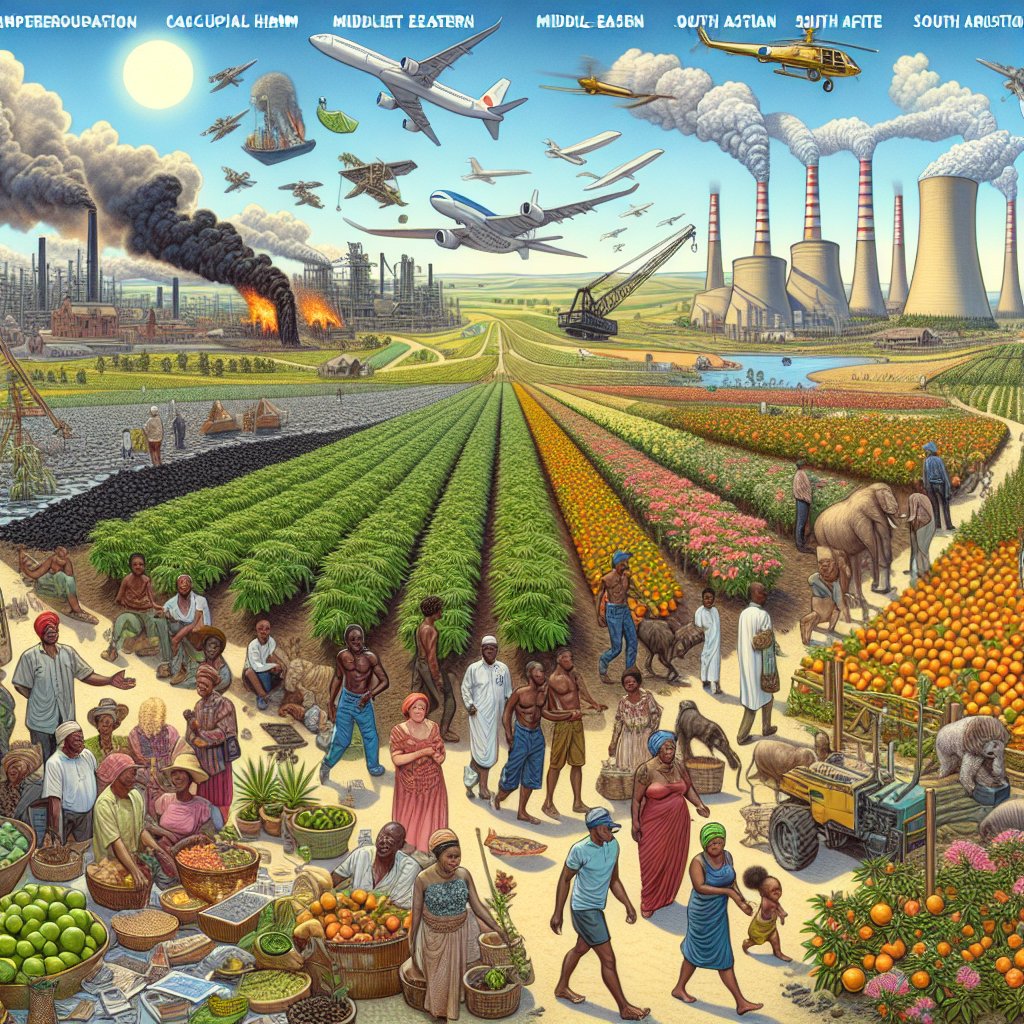Image created by AI
Green Horizons: South Africa's Potential Shift from Coal to Cannabis and Citrus
South Africa, renowned for its rich mineral resources and currently the world's 15th-largest greenhouse gas emitter, is exploring innovative pathways to a more sustainable and less carbon-intensive future. According to a recent study released by the Presidential Climate Commission, the heart of the nation's coal industry, the Eastern Mpumalanga province, could embrace a radical transformation, shifting from coal production to hemp and citrus cultivation. This move has the potential to revolutionize the area's economy while making a significant impact on the environment.
The Eastern Mpumalanga province, responsible for a staggering 87% of the country's coal output, and a major hub for power generation, has been identified as a prime candidate for diversification into agricultural endeavors that could help mitigate the looming job losses in the coal sector. The study highlighted that the area is approaching a critical juncture, with the closure of coal mines and power plants anticipated to eliminate up to 24,000 jobs by 2030.
The Presidential Climate Commission's study accentuates the urgency to create alternative employment opportunities in a region where the unemployment rate stands at 38%. This is especially crucial as the Just Energy Transition Partnership, an $8.8 billion climate finance pact, shifts focus to energy transition in South Africa. The vision is to replicate successful models from other coal-dependent regions globally, ensuring that communities do not bear the brunt of the transition.
Transformational avenues that promise to invigorate the regional economy include the development of high-value citrus and marijuana plantations, capable of reducing greenhouse gas emissions by offering an alternative to coal. Citrus plantations are not a new concept in South Africa, which has a robust citrus export industry, yet the focused expansion within the coal belt could bring much-needed economic revival. Furthermore, marijuana, which has numerous industrial applications, could become a new staple, particularly with the global growth of hemp as a sustainable resource for various products.
Beyond agriculture, the study also identified opportunities in converting sugarcane to aviation fuel—a venture that aligns with global trends in seeking renewable energy sources. Furthermore, strengthening the tourism sector could also play a vital role in the economic rejuvenation of the region.
By adopting these new sectors, the study projects the creation of approximately 95,000 jobs, offering a beacon of hope for many and charting a course for development that harmonizes economic growth with ecological preservation. The transition to a greener future represents not just a challenge but a momentous opportunity for South Africa to redefine its energy landscape and economic prospects.
With coal-dependent communities at the heart of the transition strategy, the study sets the stage for a future where the balance between human development and environmental stewardship can be reimagined, illustrating the positive potential of a just and inclusive energy transition.










